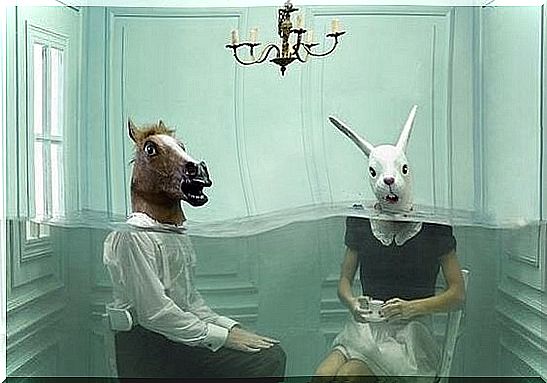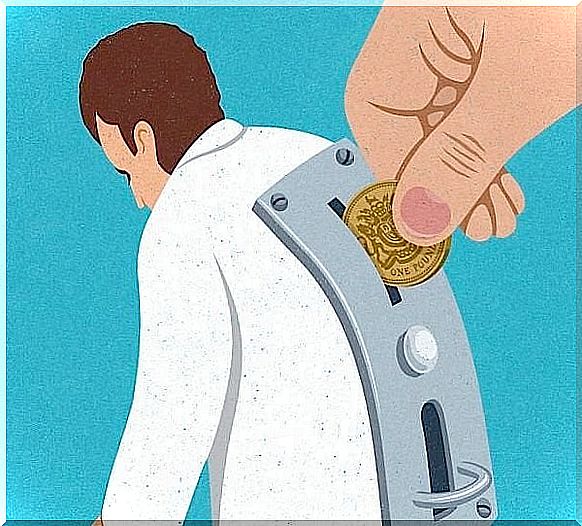Why Cynicism Was Once A Good Thing

Diogenes of Sinope was the father of cynicism. He lived in ancient Greece, during the fourth century BC. The ancient followers of this cynicism were very different from modern cynics. It was pure criticism. They disagreed with society’s hypocrisy and wanted to live in a much more authentic way.
The word “cynical” comes from the Greek word “kinus,” meaning “canine.” Cynics were therefore somewhat looked down on in those days, they would live like ‘dogs’: wandering, without property, lonely. Diogenes himself also lived like a dog, in absolute poverty. But at the same time, his caustic philosophical teaching made him one of the most astute thinkers of his time. This showed the other side of life like a dog: independent, rewarding towards the good, but hostile when necessary, free from shame, cultural rules and possessions.
Today, cynicism has taken on a very different meaning. Modern cynics don’t believe in values and brag about them. They do not criticize society with a view to improving it, but only to condemn it. They are like a surly dog, and make no valid contribution whatsoever.
Diogenes of Sinope and the Original Cynicism
Diogenes is seen as a great man and wonderful things are attributed to him. He didn’t even have a house, his only house was a barrel. He looked like a beggar because of the rags he was wearing. Yet he was one of the most insightful men of his time. Plato called him “A mad Socrates”.

It is said that Alexander the Great was interested in getting to know him. He went to find him and introduced himself with: “I am Alexander the Great”. To which the cynic replied: “And I am Diogenes, the dog”. After a short conversation, Alexander said to him: “Ask me whatever you want”. Diogenes replied: “Stand aside, you are blocking the sun”.
According to another anecdote, one day Diogenes was standing in the square eating vegetables that others had thrown in the trash. Another philosopher walked past him and said, “If you worked for nobles like me, you didn’t have to eat vegetables.” Diogenes replied, “If you ate vegetables like I did, you didn’t have to work for the nobles.” These cases give us an idea of the type of thinker he was.
Modern Cynicism
Power and money have always been a source of corruption, regardless of place and time. However, with the emergence of capitalism and the fall of the great utopias, it has now reached its peak. Money and power have motivated the most despicable behavior that has taken place in our society.

We could say that Machiavelli, the great philosopher of power, is the father of modern cynicism. His is the famous expression “The end justifies the means”. Machiavelli was followed by a series of philosophers who placed individualism above all else. According to them, man should strive for selfishness at all costs. Any course of action that benefits you is perfectly valid, whatever that means.
Throughout history, men of great political or economic power have always tended to act with great cynicism, in the modern sense. As figureheads who have led or directed societies, they have become an example to many. Many people see their actions as completely correct. And after the fall of the great ideologies and utopias, this was even more true. The power of money was defeated and that is why the end justifies the means has become such a relevant saying.
Cynicism in Interpersonal Relationships
From the highest echelons of power, cynicism has spread and infiltrated our everyday relationships. This is especially apparent in certain power relations. An example of this is the relationship between employer and employee. We can also see it in relationships between men and women and adults and children.
Although there is a strong current against cynicism, it continues to occupy an important place in our current society. Often, however, it is expressed in a very subtle way. Like when an employer, a man or an adult in the aforementioned relationships arbitrarily imposes rules as it suits him. On which the employee, the woman or the children can swallow or choke.
Cynical behavior is perverse. When such behavior enters human relationships, it makes them very unhealthy. In the short, medium or long term, there are also negative consequences for those who fall into this type of behavior. False affection promotes hidden sins and encourages hypocrisy. Although it gives you an instant selfish satisfaction, you lose much more than you gain.
Images Courtesy of Kylli Sparre








